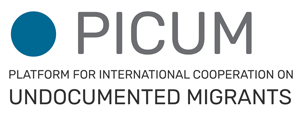ECtHR, Judgment as of 7/26/2005
Number of remonstrance 73316/01
Key issues
Prohibition of forced labour - Article 4 of the European Convention on Human Rights; definition of the terms slavery, servitude and forced labour, human trafficking; state’s obligation in the area of human trafficking.
Summary
Outcome
In the decision "Siliadin versus France", the European Court of Human Rights (ECtHR) defined the various alternative concepts - slavery, servitude, and forced labour - found in Article 4 of the European Convention for the Protection of Human Rights and Fundamental Freedoms (ECHR). The ECtHR also intensified the positive obligations incumbent upon sovereign states with respect to criminal law legislation.
Facts of the case
Ms Siliadin, a Togolese national, travelled in 1994 to France at 15 years of age on a tourist visa and with the help of a travelling companion. There was an agreement between Ms Siliadin’s family and the travelling companion that Ms Siliadin would pay off her travelling costs in the form of household work and that once her residency status had been regularized she would be able to go to school in France.
Instead, she was handed over to work in the household of a French family, who took her passport away. Ms Siliadin worked for no pay, seven days a week and up to 15 hours per day. Although she was able to escape, she returned because of the moral pressure put on her by her family and because her female employer promised to regularize her residency status. After several years, she finally managed with the help of a counselling centre to leave the employer for good.
The proceedings in France
Ms Siliadin filed a criminal complaint against her employers. They were convicted in 1999 by, among others, a court of first instance pursuant to Article 225-13 of the French Criminal Code. According to Article 225-13, anyone is guilty of a criminal offence who employs a person to work for no payment or for payment incongruous with the work performed and thereby exploits a state of dependency or vulnerability of such person. The court found that such dependency existed in the irregular residency status of Ms Siliadin and her fears in conjunction with this. She was awarded damages.
No conviction was obtained on the charge based on Article 225-14. According to Article 225-14, anyone is guilty of a criminal offence who subjects a person to working or living conditions that are repugnant to human dignity. The court was of the opinion that the working conditions of Ms Siliadin were hard albeit not repugnant to human dignity. Ms Siliadin lodged an appeal against this.
The appellate court entered an acquittal. Because she could have left her employers at the earlier time but had returned to them, the court found that there was no vulnerability or dependency.
Ms Siliadin appealed once again. Because the public prosecutor did not join in the appeal on this point, the acquittal had to remain in place and only the civil law damages aspect of the case could be decided on.
In the final appeal proceedings, the court upheld the (correctness of the) decision of the court of first instance and awarded damages in the amount of EUR 15,245.
In October 2003 in parallel proceedings before the Labour Court, Ms Siliadin was awarded EUR 31,238.
Proceedings before the European Court of Human Rights (ECtHR)
In April 2001, Ms Siliadin filed suit before the European Court of Human Rights (ECtHR). She argued that France had breached the positive obligations imposed on it by operation of Article 4 ECHR. She also argued that France had no criminal law legislation capable of adequately protecting her from the servitude, or at least from the forced labour, that she had been subjected to.
The civil law compensation that she had received from the perpetrators did not, in her opinion, adequately redress this.
Holdings of the court re the scope of Article 4 ECHR (Prohibition of forced labour)
The ECtHR expressly held in its judgment that Article 4 in conjunction with Article 2 (Right to life) and Article 3 (Prohibition of torture) represent the fundamental values of the democratic societies of the countries of the Council of Europe.
The court dealt at length with the definitions of the individual, alternative concepts found in Article 4 - slavery, servitude, forced labour - and examined each of them to determine whether they applied to Ms Siliadin’s complaint.
Forced labour
The ECtHR defined forced labour within the meaning of Article 4 ECHR as work performed by a person against his/her own will under threat of punishment.
Although Ms Siliadin had not been threatened with explicit punishment, her situation - as a minor and as an irregular migrant who was being pressured with threats of expulsion from France - was considered by the ECtHR to be equally harsh. These circumstances therefore constituted at least forced labour within the meaning of Article 4 ECHR.
Servitude
Citing its own earlier decision (“Van Droogenbroeck versus Belgium”), the ECtHR defined servitude within the meaning of Article 4 ECHR as the obligation to work for another under a severe limitation of one’s freedom. This includes the obligation to live on the property of the other person without being able to change this.
The court was of the opinion that Ms. Siliadin, being a minor and an irregular migrant, had been completely dependent on her employers. She was only allowed to leave the house to take care of the children. The ECtHR also took into account her other working conditions, the fact that she had to be available around-the-clock and the absence of any alternatives for her, and decided that her situation had been one of servitude.
Slavery
In defining this term, the ECtHR referred to the classic concept of slavery. The UN-Slavery Convention of 1927 describes slavery as being the state of a person over whom another person exercises rights of ownership. This had not been the case with Ms Siliadin.
Holdings of the court re the positive obligations arising from Article 4 ECHR (Prohibition of forced labour)
With reference to other international instruments - such as the Forced Labour Convention, 1930 or the Supplementary Convention on the Abolition of Slavery, the Slave Trade, and Institutions and Practices Similar to Slavery of the United Nations of 1956 - the court held that Article 4 operates to impose positive obligations on the state to enact and effectively enforce criminal law legislation against forced labour.
The court substantiated such obligations by resorting to its own decisions. In other contexts, the ECtHR had held that children or other vulnerable groups are entitled to the state’s protection in the form of effective deterrence through criminal law legislation, and that in the case of rape a civil law response by the state does not suffice.
In the case of Ms Siliadin, French criminal law proved to be inadequate in punishing the conduct of the perpetrators. Slavery and servitude as such were not covered by criminal law. In addition, the elements of the criminal offences were not worded precisely enough, and therefore open to a variety of interpretations, and did not provide the state with an unequivocal basis for responding to forced labour. The court regarded this as a violation of Article 4 ECHR.
Decision in full text:










